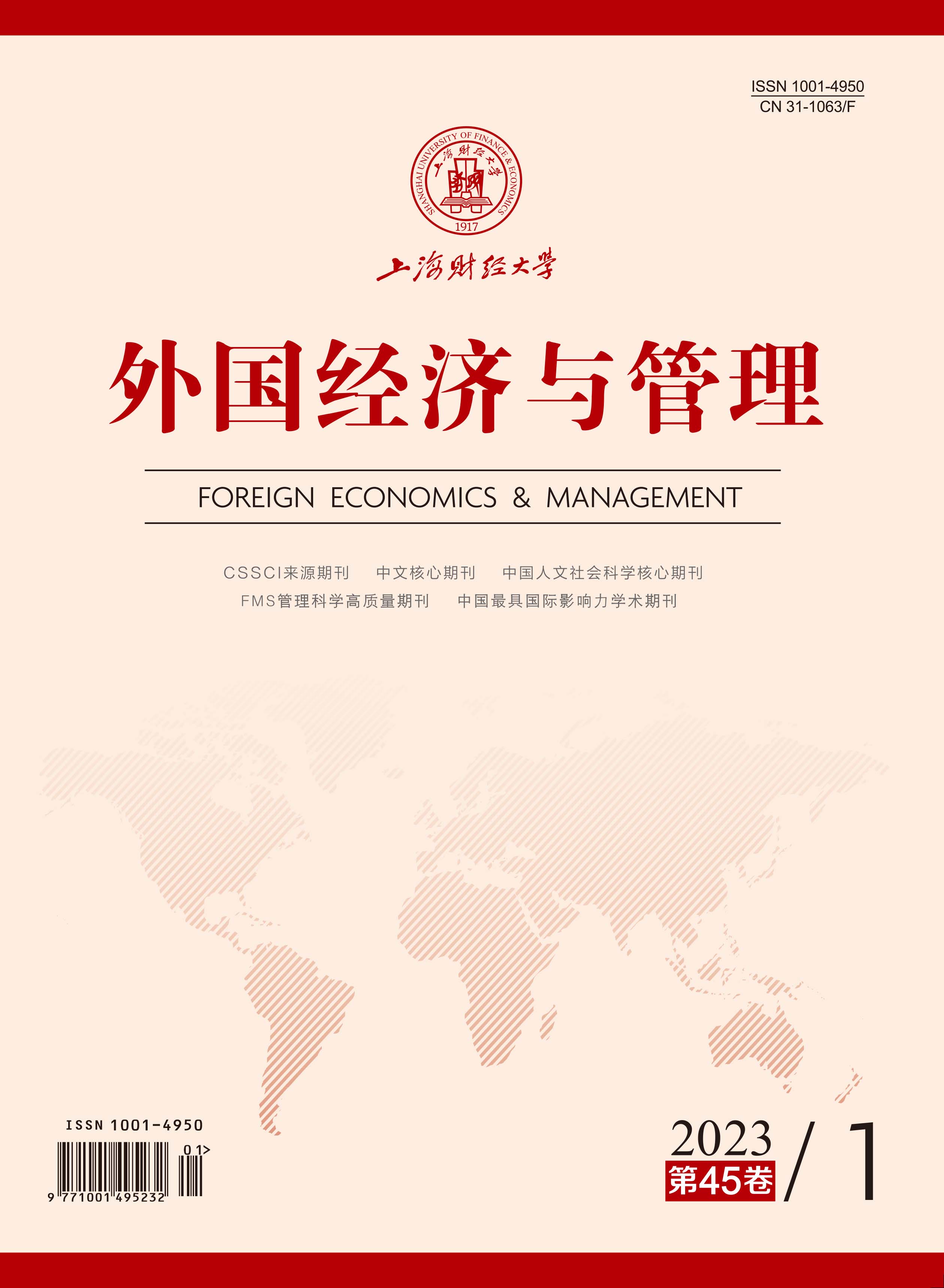新冠疫情防控具有“突发状况多、规范性少、独特性多”的特征,云计算、大数据等新型信息技术的使用为疫情防控工作提供了有力的支撑手段,但也凸显决策主体的认知缺陷问题。本文基于复杂决策理论,以2021年南京禄口机场突发新冠疫情后江苏省成功快速完成全员核酸检测系统上云部署为例,结合情景参与收集的数据,着重探究弥补决策主体认知缺陷的有效方法和实现路径。研究结果表明:(1)决策主体可以从决策问题的复杂性分析、决策目标的综合控制、决策过程的迭代、决策方案的递进优化四个维度来弥补其认知缺陷。(2)决策组织平台在初始阶段须以政府为序主体,并在不同决策阶段自发或推选确定不同的序主体。(3)“物理复杂性—系统复杂性—管理复杂性”的协同转换为复杂系统思维范式转移的有效路径。本研究对于在复杂紧急情况下如何作出与新技术应用相关的复杂决策,以及提升政府等主体的疫情防控管理决策水平具有理论意义和实践价值。
新冠疫情防控中的复杂决策研究——基于江苏省全员核酸检测系统上云部署的实践
摘要
参考文献
4 杜运周, 李佳馨, 刘秋辰, 等. 复杂动态视角下的组态理论与QCA方法: 研究进展与未来方向[J]. 管理世界,2021, 37(3): 180-197. DOI:10.3969/j.issn.1002-5502.2021.03.012
5 姜平. 复杂性科学视野下应急管理规律研究[J]. 理论探讨,2010, (5): 147-151. DOI:10.3969/j.issn.1000-8594.2010.05.037
6 金吾伦, 郭元林. 复杂性管理与复杂性科学[J]. 复杂系统与复杂性科学,2004, 1(2): 25-31. DOI:10.3969/j.issn.1672-3813.2004.02.005
7 乐云, 胡毅, 陈建国, 等. 从复杂项目管理到复杂系统管理: 北京大兴国际机场工程进度管理实践[J]. 管理世界,2022, 38(3): 212-225. DOI:10.3969/j.issn.1002-5502.2022.03.013
9 李迁, 朱永灵, 刘慧敏, 等. 港珠澳大桥决策治理体系: 原理与实务[J]. 管理世界,2019, 35(4): 52-60,159. DOI:10.3969/j.issn.1002-5502.2019.04.006
13 钱学森. 关于思维科学[M]. 上海: 上海人民出版社, 1986.
15 盛昭瀚. 管理: 从系统性到复杂性[J]. 管理科学学报,2019, 22(3): 2-14. DOI:10.3969/j.issn.1007-9807.2019.03.003
16 盛昭瀚. 重大工程管理基础理论——源于中国重大工程管理实践的理论思考[M]. 南京: 南京大学出版社, 2020.
17 盛昭瀚, 游庆仲, 陈国华, 等. 大型工程综合集成管理: 苏通大桥工程管理理论的探索与思考[M]. 北京: 科学出版社, 2009.
18 盛昭瀚, 于景元. 复杂系统管理: 一个具有中国特色的管理学新领域[J]. 管理世界,2021, 37(6): 36-50. DOI:10.3969/j.issn.1002-5502.2021.06.020
19 王健, 周国民, 王剑, 等. 认知导向信息需求研究综述[J]. 图书情报工作,2013, 57(10): 136-141. DOI:10.7536/j.issn.0252-3116.2013.10.021
21 王磊. 情境、认知与策略: 技术嵌入组织的逻辑——以新冠肺炎疫情防控中武汉市红十字会为例[J]. 求实,2021, (3): 51-67. DOI:10.3969/j.issn.1007-8487.2021.03.004
24 向阳, 于长锐. 复杂决策问题求解的定性与定量综合集成方法[J]. 管理科学学报,2001, 4(2): 25-31. DOI:10.3321/j.issn:1007-9807.2001.02.005
27 徐峰, 盛昭瀚, 丁斅, 等. 重大工程情景鲁棒性决策理论及其应用[M]. 北京: 科学出版社, 2018.
30 于长锐, 罗艳, 徐福缘. 复杂决策问题的多元化模型体系研究[J]. 管理科学学报,2004, 7(2): 88-94. DOI:10.3321/j.issn:1007-9807.2004.02.014
32 于景元, 刘毅, 马昌超. 关于复杂性研究[J]. 系统仿真学报,2002, 14(11): 1417-1424,1446. DOI:10.3969/j.issn.1004-731X.2002.11.005
33 郑晓齐, 董杜骄, 何雄. 信息技术对人类认知活动的影响分析[J]. 中国软科学,2002, (3): 118-120. DOI:10.3969/j.issn.1002-9753.2002.03.028
34 Allen P. What is complexity science? Knowledge of the limits to knowledge[J]. Emergence,2001, 3(1): 24-42. DOI:10.1207/S15327000EM0301_03
35 Bandura A. Self-efficacy: The exercise of control[M]. New York: W. H. Freeman, 1997.
36 Beck T E, Plowman D A. Experiencing rare and unusual events richly: The role of middle managers in animating and guiding organizational interpretation[J]. Organization Science,2009, 20(5): 909-924. DOI:10.1287/orsc.1090.0451
37 Burnes B. Complexity theories and organizational change[J]. International Journal of Management Reviews,2005, 7(2): 73-90. DOI:10.1111/j.1468-2370.2005.00107.x
38 Christianson M K, Farkas M T, Sutcliffe K M, et al. Learning through rare events: Significant interruptions at the Baltimore & Ohio Railroad Museum[J]. Organization Science,2009, 20(5): 846-860. DOI:10.1287/orsc.1080.0389
39 Granqvist N, Gustafsson R. Temporal institutional work[J]. Academy of Management Journal,2016, 59(3): 1009-1035. DOI:10.5465/amj.2013.0416
40 Haselton M G, Nettle D. The paranoid optimist: An integrative evolutionary model of cognitive biases[J]. Personality and Social Psychology Review,2006, 10(1): 47-66. DOI:10.1207/s15327957pspr1001_3
41 Heffernan C J. Social foundations of thought and action: A social cognitive theory, Albert Bandura Englewood Cliffs, New Jersey: Prentice Hall, 1986, xiii + 617 pp. Hardback. US$39.50[J]. Behaviour Change,1988, 5(1): 37-38. DOI:10.1017/S0813483900008238
42 Lampel J, Shamsie J, Shapira Z. Experiencing the improbable: Rare events and organizational learning[J]. Organization Science,2009, 20(5): 835-845. DOI:10.1287/orsc.1090.0479
43 Luokkala P, Virrantaus K. Developing information systems to support situational awareness and interaction in time-pressuring crisis situations[J]. Safety Science,2014, 63: 191-203. DOI:10.1016/j.ssci.2013.11.014
44 Madsen P M. These lives will not be lost in vain: Organizational learning from disaster in U. S. coal mining[J]. Organization Science,2009, 20(5): 861-875. DOI:10.1287/orsc.1080.0396
45 Marusich L R, Bakdash J Z, Onal E, et al. Effects of information availability on command-and-control decision making: Performance, trust, and situation awareness[J]. Human Factors:The Journal of the Human Factors and Ergonomics Society,2016, 58(2): 301-321. DOI:10.1177/0018720815619515
46 Mentler T, Herczeg M. Interactive cognitive artifacts for enhancing situation awareness of incident commanders in mass casualty incidents[J]. Journal of Interaction Science,2015, 3(1): 7. DOI:10.1186/s40166-015-0012-0
47 Morgeson F P, Mitchell T R, Liu D. Event system theory: An event-oriented approach to the organizational sciences[J]. Academy of Management Review,2015, 40(4): 515-537. DOI:10.5465/amr.2012.0099
48 Nazir S, Colombo S, Manca D. The role of situation awareness for the operators of process industry[J]. Chemical Engineering Transactions,2012, 26: 303-308.
49 Rerup C. Attentional triangulation: Learning from unexpected rare crises[J]. Organization Science,2009, 20(5): 876-893. DOI:10.1287/orsc.1090.0467
50 Sheng Z H. Fundamental Theories of Mega Infrastructure Construction Management: Theoretical Considerations from Chinese Practices[M]. Cham: Springer, 2018.
51 Starbuck W H. Perspective—Cognitive reactions to rare events: Perceptions, uncertainty, and learning[J]. Organization Science,2009, 20(5): 925-937. DOI:10.1287/orsc.1090.0440
52 Van Santen W, Jonker C, Wijngaards N. Crisis decision making through a shared integrative negotiation mental model[J]. International Journal of Emergency Management,2009, 6(3-4): 342-355.
53 Vermeulen P A M, Zietsma C, Greenwood R, et al. Strategic responses to institutional complexity[J]. Strategic Organization,2016, 14(4): 277-286. DOI:10.1177/1476127016675997
54 Weinan E. Principles of multiscale modeling[M]. Cambridge: Cambridge University Press, 2011.
55 Yu X, Li N, Dong Y P. Observation on China’s strategies to prevent the resurgence of the COVID-19 epidemic[J]. Risk Management and Healthcare Policy,2021, 14: 2011-2019. DOI:10.2147/RMHP.S305413
引用本文
白佳, 燕雪, 智勇. 新冠疫情防控中的复杂决策研究——基于江苏省全员核酸检测系统上云部署的实践[J]. 外国经济与管理, 2023, 45(1): 55-66.
导出参考文献,格式为:





 5452
5452  6221
6221

